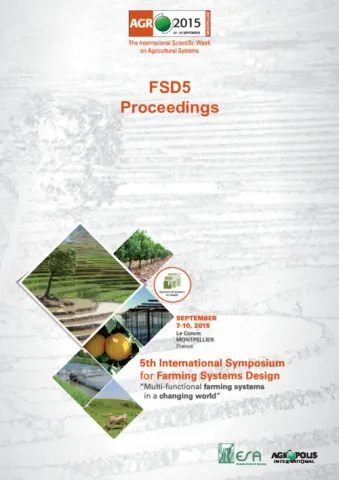Farm type-specific adoption behaviour in sustainable soil nutrient management: the case of smallholder farms in Ioba province, Burkina Faso

Abstract
Sub-Saharan Africa has failed to ensure sufficient and sustainable food production, mainly as a result of soil nutrient depletion. The persisting food insecurity and poverty, despite proven sustainable soil nutrient management (SNM) practices denote the failure of policy intervention to leverage farm incentives to adopt SNM practices. The main objective of this study was to analyse the farming system type-specific behaviour in the adoption and use of SNM practices in a semiarid region of Burkina Faso. Six villages (i.e., two villages per commune) were chosen according to the two major soil types in each commune. We randomly sampled and surveyed 360 household-farms to obtain a multidimensional dataset, using the Sustainable Livelihood Framework as a guide. Binary logistic regressions were used to analyse the determinants of mineral fertiliser use intensity, separate the adoption of mineral and organic fertilisers and combine mineral-organic fertiliser adoption at the plot level for different farming systems. Maize plots were mainly considered as it was the main food crop for which the farmers used most of the available fertilisers. Our study additionally showed the existence of heterogeneity in the adoption behaviour and use of SNM practices. This implies that effective policy interventions promoting the adoption of SNM practices should be designed according to the farming system type for leveraging farm incentives to adopt SNM practices. Farm design studies also need to account for the farmers’ behavioural heterogeneity. This study’s results can be used for scaling-out research and serve as a framework for policy intervention and further studies in the region
